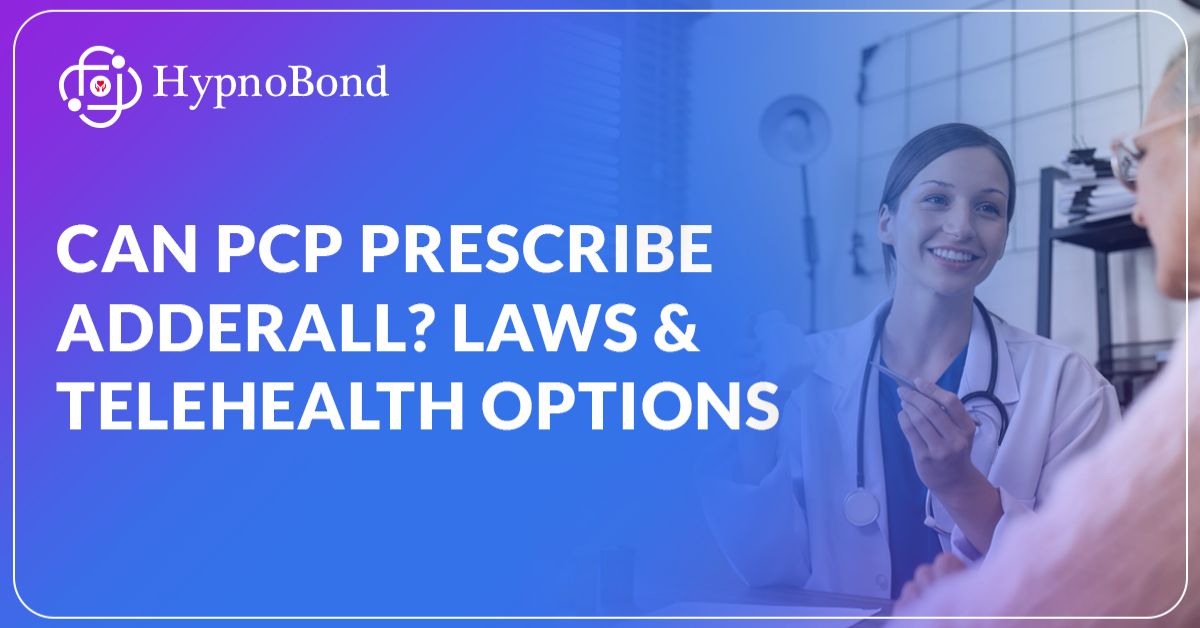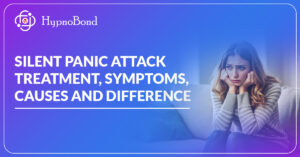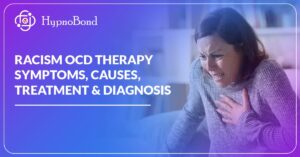Attention Deficit Hyperactivity Disorder (ADHD) affects millions of adults and children, with symptoms ranging from difficulty focusing to impulsive behavior. One of the most commonly prescribed medications for ADHD is Adderall, a stimulant that helps improve concentration and reduce hyperactivity. However, many patients wonder: Can a PCP prescribe Adderall? The answer isn’t always straightforward, as prescribing regulations vary by state, medical practice policies, and individual patient needs.
This comprehensive guide will explore:
- Who can prescribe Adderall (PCPs, psychiatrists, nurse practitioners, and physician assistants)
- How to navigate the ADHD diagnostic process and receive proper treatment
- Alternative medications for those who can’t take stimulants
- Managing Adderall side effects and drug interactions
- Telehealth options for ADHD treatment
- Long-term ADHD management strategies
Whether you’re seeking your first prescription, considering switching providers, or exploring alternative treatments, this guide provides the essential information you need for effective ADHD medication management.
Who Can Prescribe Adderall?
Adderall, a controlled substance used to treat ADHD, can only be prescribed by licensed medical professionals. Primary care physicians (PCPs) often prescribe it, but some refer patients to psychiatrists for specialized care. Psychiatric nurse practitioners and physician assistants (PAs) may also prescribe Adderall, depending on state regulations.
Additionally, telehealth providers like Talkiatry can evaluate and prescribe Adderall following proper diagnosis. However, strict DEA regulations apply, and some states require in-person visits for controlled substances. Always verify a provider’s prescribing authority before seeking treatment to ensure compliance with local laws and medical guidelines.

Can a Primary Care Physician (PCP) Prescribe Adderall?
Yes, in most cases, PCPs can prescribe Adderall. Many general practitioners manage ADHD medications for their patients, especially in areas with limited access to psychiatrists. However, some factors influence whether a PCP will prescribe stimulants:
- State regulations: Some states require special certifications or impose stricter controls on Schedule II drugs like Adderall.
- Clinic policies: Certain healthcare systems prefer that psychiatrists handle ADHD medications.
- Patient history: PCPs may refer complex cases (like patients with co-occurring mental health conditions) to specialists.
Key Takeaway: If you’re comfortable with your PCP managing your ADHD treatment, ask directly about their prescribing policies. Many are willing to continue prescriptions started by specialists.
Can a Physician Assistant (PA) Prescribe Adderall?
Yes, physician assistants can prescribe Adderall, provided they have prescribing authority in their state and work under a supervising physician. PAs often play a key role in ADHD medication management, especially in primary care settings.
Can Psychiatric Nurse Practitioners Prescribe Adderall?
In states where autonomous psychiatric nurses have full practice authority, they can prescribe stimulants like Adderall without physician oversight. Even in restricted states, they can often prescribe under collaborative agreements.
Does Talkiatry (Telehealth Psychiatry) Prescribe Adderall?
Yes, Talkiatry and other telehealth ADHD services can evaluate and prescribe Adderall after a comprehensive assessment. However, recent DEA rule changes require at least one in-person visit for controlled substances in some cases.
Read More: The Science Behind Hypnosis for Intrusive Thoughts
Getting an ADHD Diagnosis & Prescription
To get an ADHD diagnosis, doctors evaluate symptoms through questionnaires, medical history, and sometimes cognitive tests. While primary care physicians can evaluate for ADHD, more complex cases often require specialist assessment.
Treatment often includes stimulants like Adderall or non-stimulant options, with controlled substances requiring careful monitoring. Telehealth is available but may require in-person visits depending on state laws. Proper diagnosis and treatment can greatly improve daily functioning. Personalized ADHD management begins with consulting a licensed medical provider.

How to Tell Your Doctor You Think You Have ADHD
If you’re seeking an ADHD diagnosis, maximize your consultation by:
- Tracking symptoms (forgetfulness, impulsivity, poor time management)
- Gathering school/work records (if applicable)
- Openly sharing how your symptoms affect daily life helps your doctor understand your needs.
Many doctors use standardized ADHD testing, which may include:
- Questionnaires (e.g., ASRS-v1.1)
- Cognitive assessments
- Clinical interviews
How Long Does ADHD Testing Take?
The process varies:
- Basic screening: 15-30 minutes (often done by PCPs)
- Full neuropsychological evaluation: 2-5 hours (usually with specialists)
- Telehealth assessments: 1-2 sessions
Insurance Coverage for ADHD Treatment
Most insurance plans cover:
- ADHD evaluations
- Generic Adderall (brand name may require prior authorization)
- Some therapy sessions
Check your plan’s formulary for Vyvanse coverage, as it’s often more expensive.
Adderall Alternatives & Complementary Treatments
If Adderall isn’t right for you, effective alternatives include non-stimulant medications like Strattera and Intuniv. Some patients respond well to off-label options (Wellbutrin) or natural supplements (omega-3s). Complementary approaches like CBT, exercise, and sleep optimization can boost results.
Certain supplements (magnesium, L-theanine) may help manage side effects. Always consult your doctor before making changes, as responses vary. The best option depends on your unique needs and health profile.

Best Alternatives to Adderall
For those who don’t tolerate stimulants well:
- Vyvanse (lisdexamfetamine) – Longer-lasting, smoother than Adderall
- Non-stimulants:
- Strattera (atomoxetine)
- Intuniv (guanfacine)
- Off-label options:
- Wellbutrin (bupropion)
- Modafinil (for ADHD with fatigue)
Warning: Never purchase Vyvanse online from unverified sources – this is illegal and dangerous.
SSRIs and ADHD: Can Zoloft or Lexapro Help?
While SSRIs like Zoloft and Lexapro don’t treat core ADHD symptoms, they can help with:
- Co-occurring anxiety/depression
- Emotional dysregulation
- ADHD rejection sensitivity
Doctors may prescribe Adderall and Zoloft concurrently for certain patients, with careful monitoring. However, can Zoloft make ADHD worse? For some, it causes fatigue that exacerbates inattention.
Natural Alternatives: Ashwagandha and ADHD
Some patients use ashwagandha to:
- Reduce stress (which worsens ADHD symptoms)
- Improve sleep quality
- Counteract Adderall side effects like anxiety
However, always consult your doctor before combining supplements with prescription meds.
Managing Adderall Treatment
Successful Adderall treatment requires consistency and monitoring. Take doses as prescribed, preferably early to prevent sleep issues, and stay hydrated. Track effects and report changes to your doctor. Protein-rich meals help stabilize energy, while occasional breaks (under supervision) may maintain effectiveness.
Regular heart health checks are important. Combine medication with therapy and organizational strategies for the best results. Always store Adderall safely and never share it. Close doctor collaboration ensures safe, long-term benefits.

Common Adderall Side Effects
| Side Effect | Management Strategies |
|---|---|
| Insomnia | Take medication earlier, practice sleep hygiene |
| Appetite loss | Eat before dosing, nutrient-dense snacks |
| Anxiety | Lower dose, add anti-anxiety meds/therapy |
| Crash | Extended-release formulas, protein-rich meals |
Adderall for Social Anxiety: Help or Hindrance?
Some find that Adderall improves social confidence by:
- Reducing overthinking
- Improving focus in conversations
Others experience worsened anxiety from overstimulation. If using Adderall for social anxiety, monitor effects carefully.
Counteracting Adderall Side Effects
Strategies include:
- Staying hydrated
- Taking magnesium supplements (may help with jaw clenching)
- Scheduling medication “holidays” when possible
Living with ADHD as an Adult
Adult ADHD brings challenges in focus, organization, and time management, but effective strategies can help. Use tools like calendar alerts, task apps, and time-blocking to stay on track. Break projects into smaller steps to avoid overwhelm, and leverage your natural creativity and hyperfocus as strengths.
Consider workplace accommodations if needed, and explore therapy or coaching for emotional regulation. With the right approach, ADHD traits can become powerful assets in daily life.

Therapy Goals for ADHD
Effective therapy focuses on:
- ADHD avoidance behaviors (procrastination, task avoidance)
- Emotional regulation
- Systems for organization/time management
Famous People with ADHD
From Einstein’s ADHD-like traits to modern billionaires with ADHD, many high achievers credit their success to ADHD-related hyperfocus and creativity.
Long-Term Management Strategies
- Use tools like the Wisely ADHD app for habit tracking
- Consider workplace accommodations
- Join ADHD support groups
Read More: Intuition vs Anxiety – What Your Mind Is Telling You








